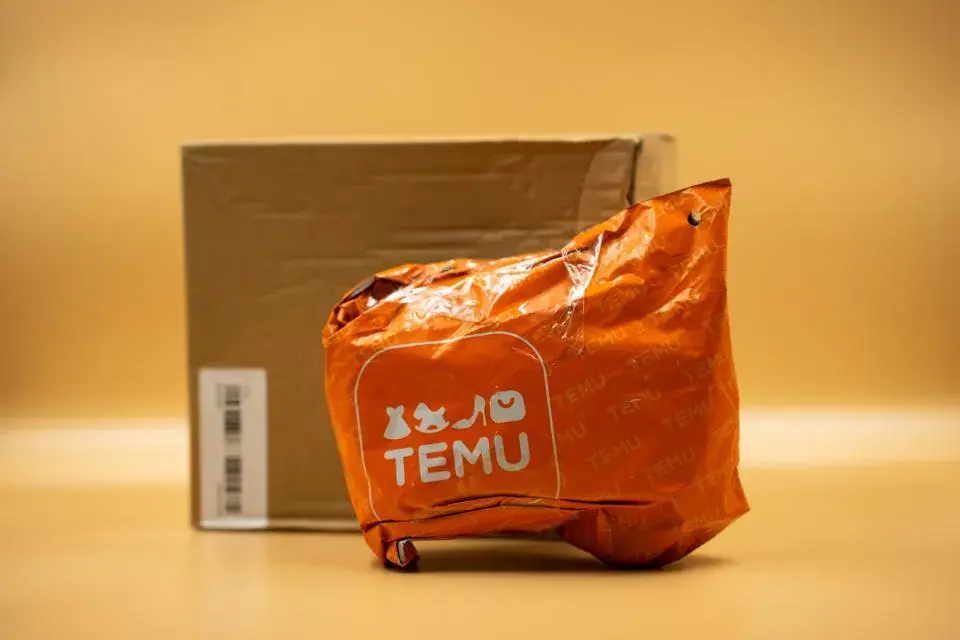Temu, a Chinese-owned online marketplace, is making significant waves in the U.S. market, sparking discussions about whether it could challenge Amazon's dominant position in American e-commerce. Owned by PDD Holdings, the company behind China's Pinduoduo, Temu has embarked on an aggressive global expansion campaign, marked by a high-profile advertising blitz during the Super Bowl. With $21 million spent on ads and an additional $15 million on discounts and coupons, Temu is aiming to capture the attention of U.S. consumers in a big way.
Temu’s Strategy: Shoptainment and Low Prices
Temu’s approach to e-commerce is distinct from Amazon’s. Where Amazon focuses on being the go-to platform for everything consumers need, Temu entices shoppers with unbelievably low prices and a gamified shopping experience. This strategy, often referred to as "shoptainment," encourages users to explore and purchase items they never knew they wanted. For example, users are greeted by a spinning wheel that offers coupons, making the shopping experience feel more like a game than a transaction.
The products on Temu are incredibly cheap, ranging from 35-cent phone cases to $1.59 house slippers. The platform's goal is to make shopping fun and affordable, appealing to consumers who might not have specific needs but are attracted to the thrill of finding a great deal.
Direct Sourcing from Chinese Manufacturers
Temu’s business model capitalizes on the current economic climates in both China and the U.S. While American consumers are grappling with inflation, Chinese manufacturers are dealing with deflation and excess capacity. Temu bridges this gap by allowing Chinese manufacturers to offload surplus goods directly to U.S. consumers at rock-bottom prices. This direct-from-the-factory approach enables Temu to offer prices that are often significantly lower than those found on Amazon.
Massive Marketing Spend
To establish itself in the U.S. market, Temu has been spending aggressively on advertising. In the fourth quarter of 2023, Temu was the fifth-largest advertiser in the United States, and analysts from JPMorgan estimate that the company will spend $3 billion on marketing in 2024. This heavy investment has driven Temu to the top of the app download charts, with 50 million monthly active users as of January 2024.
Temu’s advertising push has also had a ripple effect on the digital ad market, particularly on platforms like Facebook and Instagram. The increased demand for ad space has driven up costs, making it more challenging for other e-commerce platforms, such as Etsy, to compete.
Challenges Ahead
Despite its early success, Temu faces significant challenges in its quest to dethrone Amazon. One of the most significant hurdles is shipping speed. Amazon’s Prime service, with its promise of overnight or same-day delivery, has set a high standard for convenience. In contrast, Temu’s standard shipping takes six to 20 days, with even its express option taking four to nine days. This slower delivery time may deter consumers who are accustomed to the instant gratification offered by Amazon.
Another challenge for Temu is its brand perception. While the platform’s low prices are appealing, its carnival-like shopping experience and odd product selection may prevent it from attracting higher-end brands. It’s unlikely that established names like Apple or Nike would want their products sold alongside cheap, off-brand items. This positions Temu more as a site for budget-conscious splurges rather than a place for everyday shopping.
Will Temu Overtake Amazon?
Temu’s innovative approach and aggressive marketing have given it a strong start in the U.S. market. However, whether it can sustain this momentum and challenge Amazon’s dominance remains to be seen. Temu’s model of gamified, bargain shopping might nibble at the edges of Amazon’s market share, but it’s unlikely to significantly disrupt Amazon’s position as the leader in U.S. e-commerce—at least in the near term.
Temu’s rise highlights the potential for new entrants in the e-commerce space to challenge established giants like Amazon. However, the platform will need to overcome significant logistical and brand perception hurdles if it hopes to become a true competitor. For now, Temu’s focus seems to be on capturing a niche market of deal-hunters and casual shoppers, rather than taking on Amazon head-to-head.
As Temu continues to expand and evolve, it will be interesting to see whether its unique approach to e-commerce can carve out a lasting presence in the U.S. market.













